1. Early life and education
Shirley MacLaine's early life was marked by her family's frequent relocations and her early introduction to the performing arts, particularly ballet, which laid the foundation for her multifaceted career.
1.1. Birth and family background
Named after child actress Shirley Temple, Shirley MacLean Beaty was born on April 24, 1934, in Richmond, Virginia. Her father, Ira Owens Beaty, was a professor of psychology, a public school administrator, and a real estate agent. Her Canadian mother, Kathlyn Corinne (née MacLean), was a drama teacher from Wolfville, Nova Scotia. MacLaine's younger brother is the acclaimed actor, writer, and director Warren Beatty, who later changed the spelling of his surname for his career. Both Shirley and Warren were raised as Baptists by their parents. Her mother's brother-in-law was A. A. MacLeod, a Communist member of the Ontario provincial legislature in the 1940s.
1.2. Childhood and early influences
While MacLaine was still a child, her father, Ira Beaty, moved the family from Richmond to Norfolk, then to Arlington, then to Waverly, and then back to Arlington, where he worked at Thomas Jefferson Junior High School in 1945. During the 1950s, the family resided in the Dominion Hills section of Arlington. As a child, MacLaine played baseball on a boys' team and held the record for most home runs, earning her the nickname "Powerhouse".
As a toddler, MacLaine had weak ankles and would fall with the slightest misstep, prompting her mother to enroll her in ballet class at the Washington School of Ballet at the age of three. This marked the beginning of her interest in performing. Strongly motivated by ballet, she never missed a class. In classical romantic pieces such as Romeo and Juliet and The Sleeping Beauty, she often played boys' roles because she was the tallest among the girls in her groups. MacLaine eventually secured a substantial female role as the fairy godmother in Cinderella, but while warming up backstage, she broke her ankle. Despite the injury, she tightened the ribbons on her toe shoes and completed the entire performance before calling for an ambulance. Ultimately, MacLaine decided against pursuing a career in professional ballet because she had grown too tall and felt unable to perfect her technique, explaining that her body type lacked the requisite "beautifully constructed feet" of high arches, high insteps, and a flexible ankle. She then transitioned to other forms of dancing, as well as acting and musical theater. MacLaine attended Washington-Lee High School in Arlington, Virginia, where she was a member of the cheerleading squad and participated in school theatrical productions.
2. Career
Shirley MacLaine's career spans over seven decades, encompassing significant contributions to film, television, and theatre, establishing her as one of Hollywood's most enduring stars.
2.1. Early career and Broadway debut
The summer before her senior year of high school in Arlington, Virginia, MacLaine traveled to New York City to pursue acting, achieving minor success in the chorus of a touring production of Oklahoma! on the Subway Circuit. After graduating, she returned to New York and made her Broadway debut dancing in the ensemble of Me and Juliet (1953-1954). Following this, she became an understudy for actress Carol Haney in The Pajama Game. In May 1954, when Haney injured her ankle during a Wednesday matinee, MacLaine performed in her place. A few months later, with Haney still recovering, Jerry Lewis saw MacLaine perform and urged film producer Hal B. Wallis to attend an evening performance, hoping to cast her in Artists and Models. Wallis subsequently signed her to a contract with Paramount Pictures.
2.2. Film debut and early success (1955-1959)
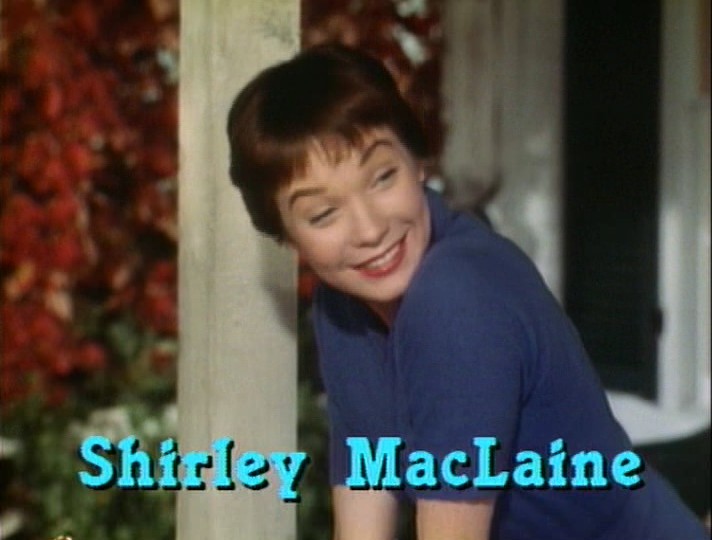
MacLaine's career quickly ascended during the final years of the Golden Age of Hollywood. She made her film debut in Alfred Hitchcock's black comedy The Trouble with Harry (1955), for which she won the Golden Globe Award for New Star of the Year - Actress. This debut was swiftly followed by her role in the Martin and Lewis film Artists and Models (also 1955).
She then took on the female lead in Around the World in 80 Days (1956), which went on to win the Academy Award for Best Picture. The late 1950s saw her in several films including Hot Spell, The Sheepman, and The Matchmaker, all released in 1958.
In Vincente Minelli's adaptation of James Jones' novel Some Came Running, MacLaine played Ginny Moorehead, who falls in love with Frank Sinatra's character, Dave. This 1958 film marked her second collaboration with Dean Martin. Her performance as Ginny Moorehead garnered positive reviews and earned her first nominations for the Academy Award for Best Actress and the Golden Globe Award for Best Actress in a Motion Picture - Drama. She appeared with Dean Martin again in Career (1959), their third film together.
2.3. Critical acclaim and diverse roles (1960-1976)
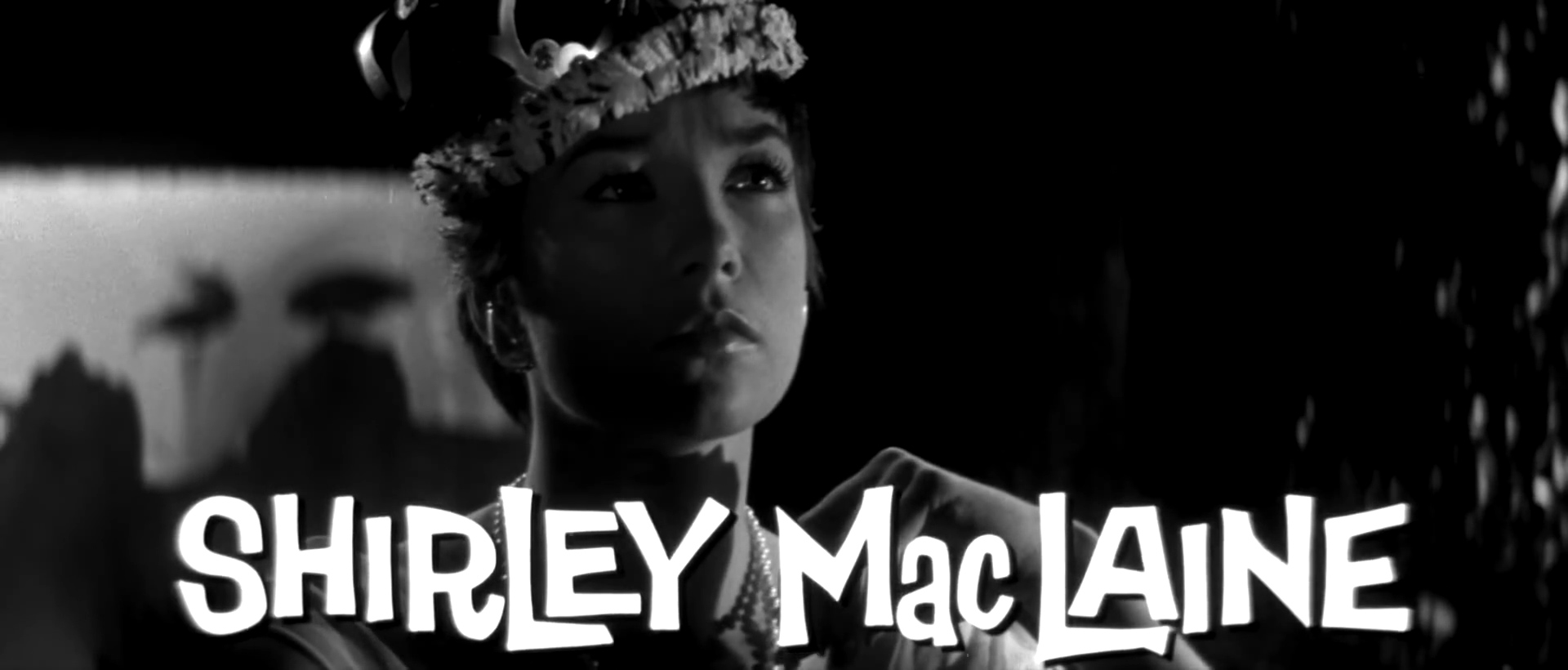
In 1960, MacLaine appeared with Frank Sinatra in Can-Can and made a cameo appearance in the Rat Pack movie Ocean's 11. She would later become an honorary member of the Rat Pack, with MacLaine noting that Frank Sinatra and Dean Martin "protected" her.
A pivotal role came in 1960 when MacLaine starred in Billy Wilder's romantic comedy The Apartment. Set in the Upper West Side of Manhattan, the film follows an insurance clerk, C.C. Baxter (Jack Lemmon), who allows co-workers to use his apartment for their extramarital affairs, while he is attracted to the insurance company's elevator operator (MacLaine), who is involved with Baxter's boss (Fred MacMurray). The film received widespread critical acclaim and was a major commercial success, grossing over 25.00 M USD at the box office. It garnered ten Academy Award nominations, winning five, including Best Picture, Best Director, Best Original Screenplay, Best Art Direction (Black and White), and Best Film Editing. MacLaine's performance earned her a second nomination for the Academy Award for Best Actress. Despite being highly favored to win, she lost the award to Elizabeth Taylor for BUtterfield 8. However, she won the Volpi Cup for Best Actress, the BAFTA Award for Best Actress in a Leading Role, and the Golden Globe Award for Best Actress - Motion Picture Comedy or Musical. The Apartment was included by Roger Ebert in his 2001 Great Movies list. At the 89th Academy Awards, Charlize Theron praised MacLaine's performance as "raw, real, and funny," making the black and white film "feel like it's in color."
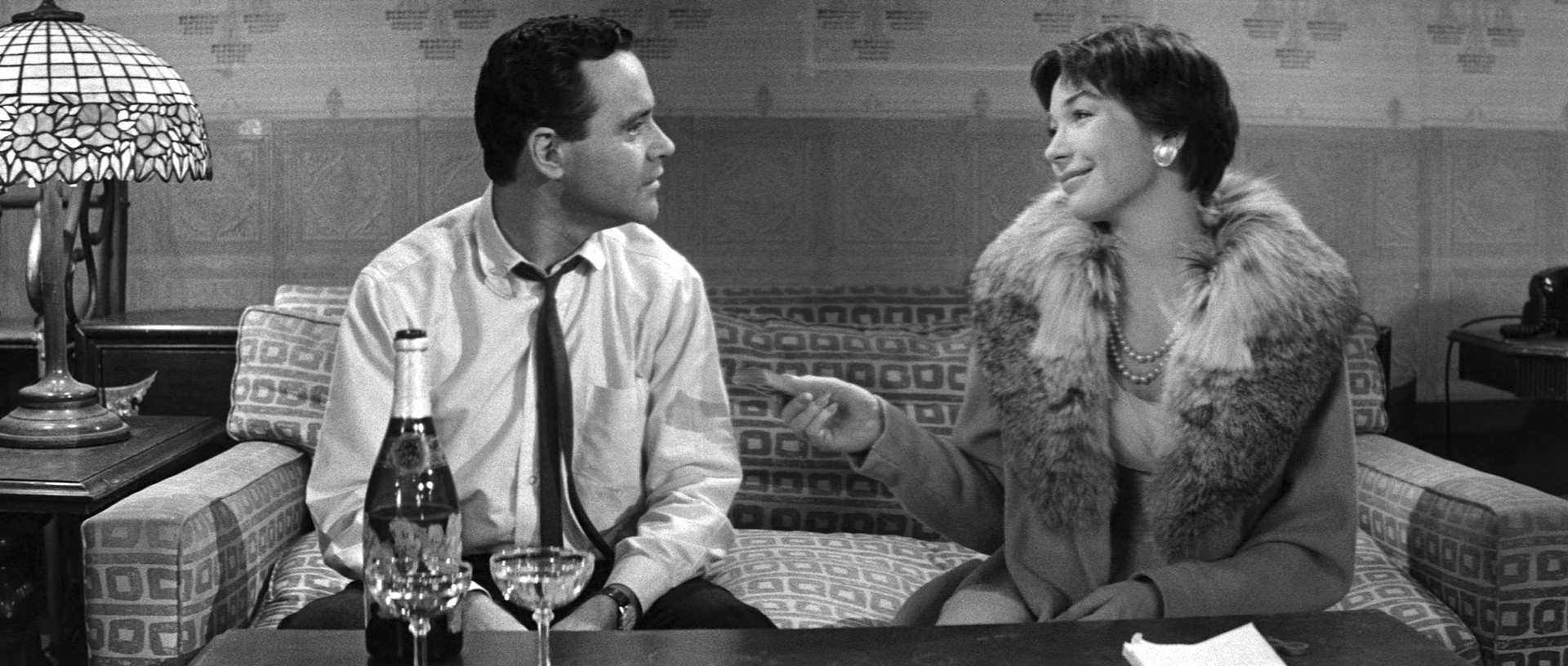
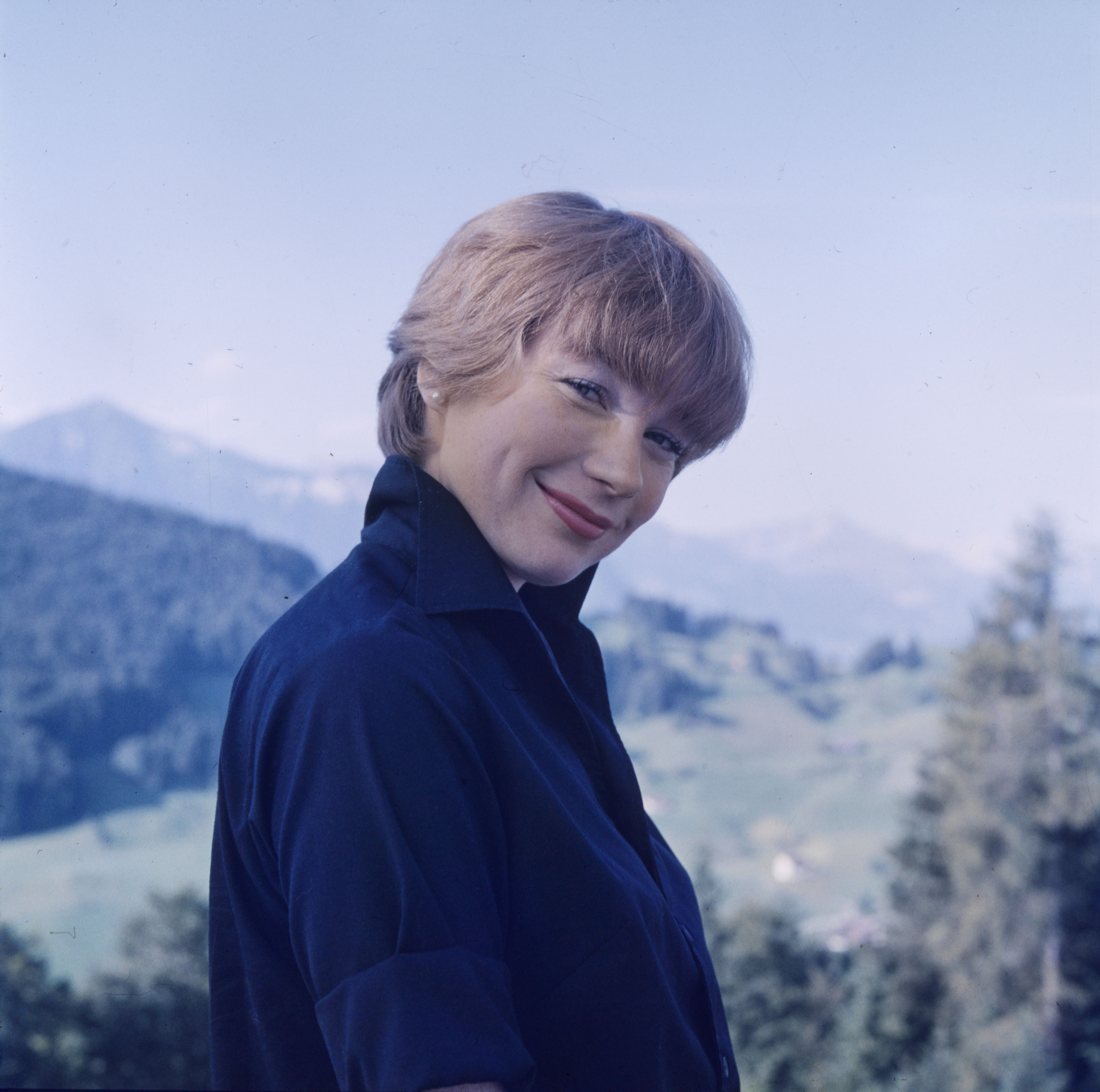
MacLaine then starred in The Children's Hour (1961), based on the play by Lillian Hellman and directed by William Wyler.
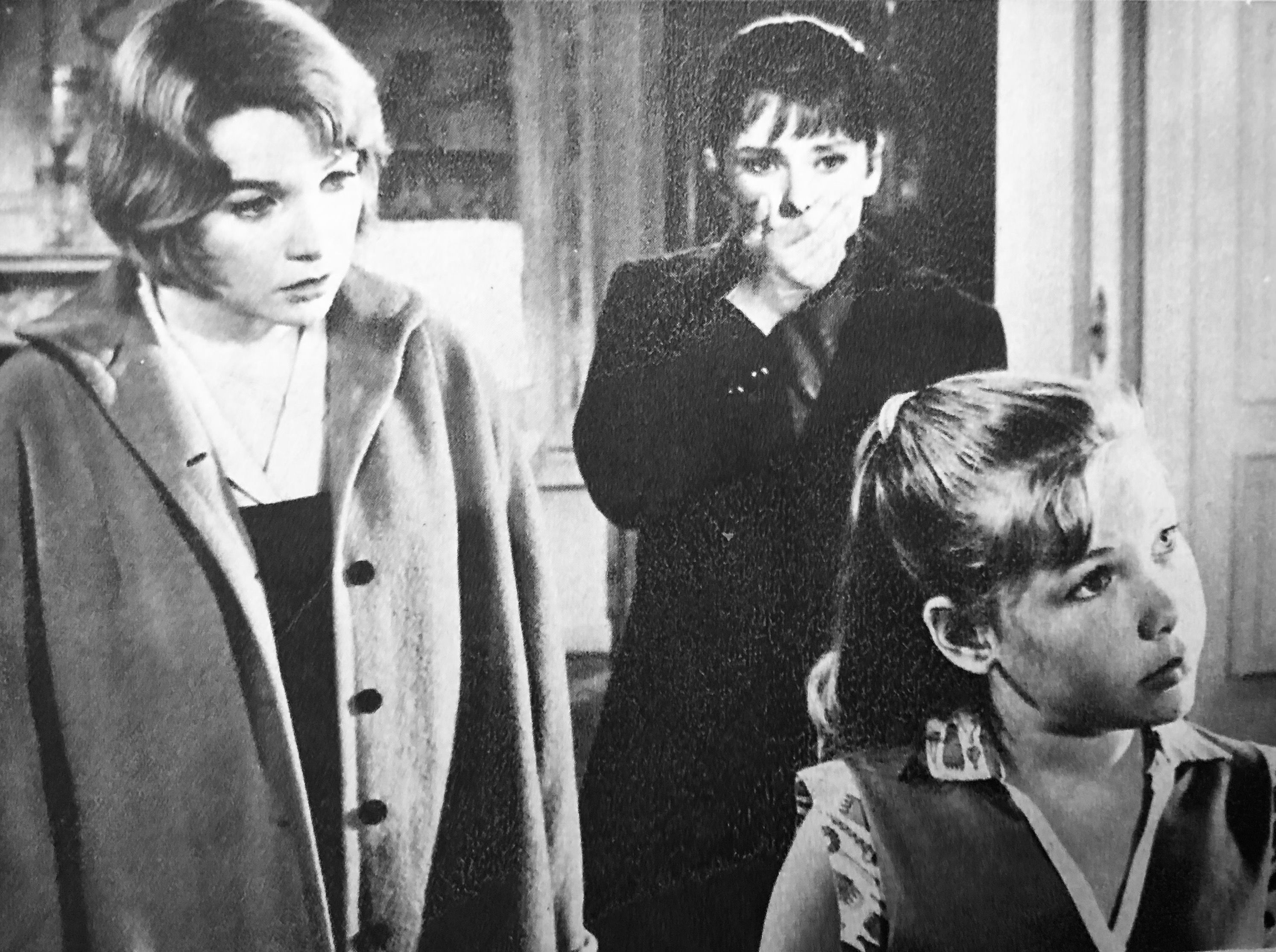
She reunited with Wilder and Lemmon for Irma la Douce (1963), which earned her a third nomination for the Academy Award for Best Actress, in addition to winning her second Golden Globe Award for Best Actress - Motion Picture Comedy or Musical.
In 1970, MacLaine published her first memoir, Don't Fall off the Mountain, in which she recounted a 1963 incident where she punched The Hollywood Reporter columnist Mike Connolly in the mouth at his Los Angeles office. This act was fueled by her anger over his column's remarks about her ongoing contractual dispute with producer Hal B. Wallis, who had introduced her to the film industry in 1954. She eventually sued Wallis successfully for violating their contract terms. The incident made headlines, including on the cover of the New York Post on June 11, 1963, with the full story appearing on page 5 under the headline "Shirley Delivers A Punchy Line!" by Bernard Lefkowitz.
MacLaine starred in the Cold War comedy John Goldfarb, Please Come Home! (1965), with a screenplay by William Peter Blatty, and then co-starred with Michael Caine in the crime thriller Gambit (1966). In the mid-1960s, Twentieth Century-Fox offered her a "pay or play" salary of 750.00 K USD to appear in a movie adaptation of the musical Bloomer Girl. However, the project was canceled, leading to a significant lawsuit.
MacLaine next starred in seven roles as seven different women in Vittorio DeSica's episodic film Woman Times Seven (1967), a collection of stories about love and adultery set in Paris. She followed this with another comedy, The Bliss of Mrs. Blossom in 1968. Both films were box office flops.
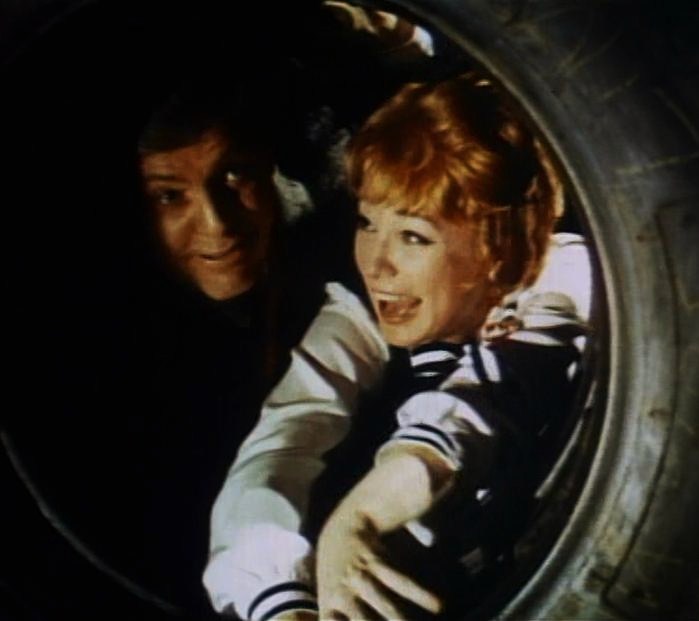
In 1969, MacLaine starred in the film version of the musical Sweet Charity, directed by Bob Fosse and based on the script for Federico Fellini's Nights of Cabiria. Although Gwen Verdon, who originated the role onstage, hoped to play Charity in the film, MacLaine secured the role due to her greater name recognition with audiences. Verdon signed on as Fosse's assistant, helping teach MacLaine the intricate dance routines. MacLaine received a Golden Globe Award for Best Actress - Motion Picture Comedy or Musical nomination for her performance, though the film was not a financial success.
In 1970, MacLaine was top-billed in Two Mules for Sister Sara, a role originally written for Elizabeth Taylor, who declined it. The Western film was a hit, largely attributed to her co-star Clint Eastwood, who was one of the top box office stars at the time. The film's director, Don Siegel, remarked of MacLaine that "It's hard to feel any great warmth to her. She's too unfeminine, and has too much balls. She's very, very hard."
She then transitioned to television, starring as a photojournalist in the short-lived sitcom Shirley's World (1971-1972). Co-produced by Sheldon Leonard and ITC Entertainment, the series was filmed in the United Kingdom. As part of this deal, Lew Grade produced the low-budget drama Desperate Characters (1970), in which MacLaine also starred.
MacLaine put her acting career on hold as she actively campaigned for George McGovern during the 1972 presidential election, including the Democratic primaries. In 1973, her friend, writer and director William Peter Blatty, wanted to cast her for the role of the mother in The Exorcist. However, MacLaine declined the part, as she had recently appeared in another film about the supernatural, The Possession of Joel Delaney (1972). The role in The Exorcist was eventually played by Ellen Burstyn.
MacLaine's documentary film The Other Half of the Sky: A China Memoir (1975), which she co-directed with film and television director Claudia Weill, chronicled the first women's delegation to China in 1973. The film was released theatrically and on PBS, and was nominated for the Academy Award for Best Documentary Feature Film.
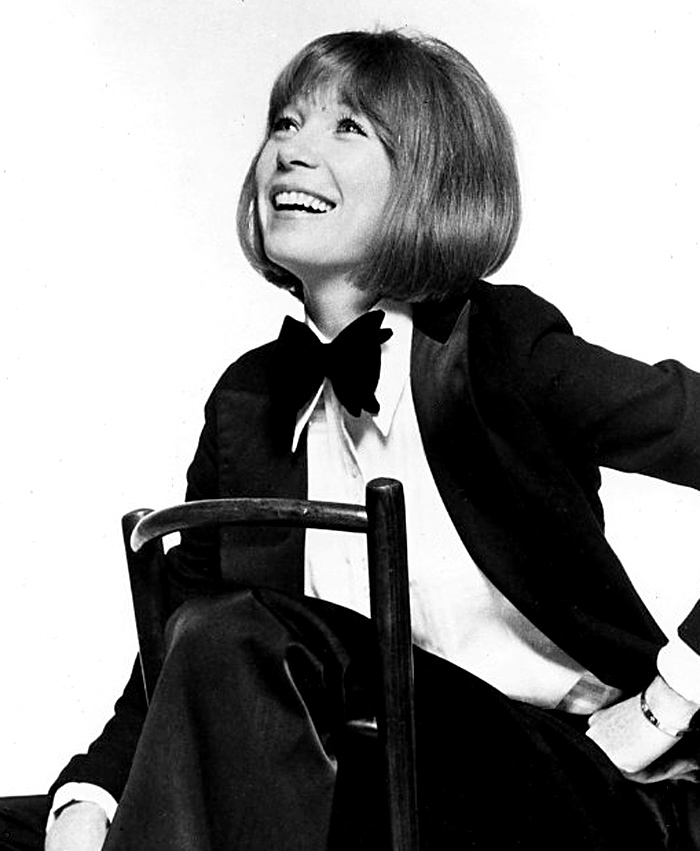
MacLaine returned to live onstage performances during the 1970s. In 1976, she appeared in a series of concerts at the London Palladium and New York's Palace Theatre. The latter performance was released as the live album Shirley MacLaine Live at the Palace.
2.4. Academy Award win and career resurgence (1977-1983)
MacLaine initiated a significant career comeback with the drama The Turning Point (1977), in which she portrayed a retired ballerina. Her performance in the film received critical acclaim, earning her a fourth nomination for the Academy Award for Best Actress. In 1978, she was awarded the Women in Film Crystal Award for her outstanding contributions and endurance in expanding the role of women within the entertainment industry.
In 1979, she starred alongside Peter Sellers in Hal Ashby's satirical film Being There. The film received widespread acclaim, with Roger Ebert praising it for having the "guts to take this totally weird concept and push it to its ultimate comic conclusion." MacLaine received a British Academy Film Award and a Golden Globe Award nomination for her performance.
In 1980, MacLaine starred in two other films about adultery: A Change of Seasons alongside Anthony Hopkins and Bo Derek, and Loving Couples with James Coburn and Susan Sarandon. Neither film was a commercial success, and critics were generally unfavorable. Roger Ebert of the Chicago Sun-Times called Loving Couples "a dumb remake of a very old idea that has been done so much better so many times before, that this version is wretchedly unnecessary... the whole project smells like high-gloss sitcom." MacLaine and Hopkins reportedly did not get along on the set of A Change of Seasons, and while the film itself was criticized, MacLaine received positive notices for her performance. Vincent Canby of The New York Times noted that the film "exhibits no sense of humor and no appreciation for the ridiculous... the screenplay [is] often dreadful... the only appealing performance is Miss MacLaine's, and she's too good to be true. A Change of Seasons does prove one thing, though. A farce about characters who've been freed of their conventional obligations quickly becomes aimless."
A significant milestone in her career came in 1983 when she starred in James L. Brooks's comedy-drama Terms of Endearment, playing Debra Winger's mother. The film explores the strained relationship between mother and daughter over 30 years. It emerged as both a critical and commercial success, grossing 108.40 M USD and becoming the second-highest-grossing film of the year. The film received a leading 11 nominations at the 56th Academy Awards and won five, including Best Picture. Both MacLaine and Winger earned nominations for the Academy Award for Best Actress, with MacLaine ultimately winning the award, her first and only win in the category. Her acceptance speech, famously declaring "I deserve this!", highlighted her long wait for the honor. Her performance also earned her the Golden Globe Award for Best Actress in a Motion Picture - Drama, the David di Donatello for Best Foreign Actress, the Los Angeles Film Critics Association Award for Best Actress, the National Board of Review Award for Best Actress, and the New York Film Critics Circle Award for Best Actress.
2.5. Later career and television work (1984-present)
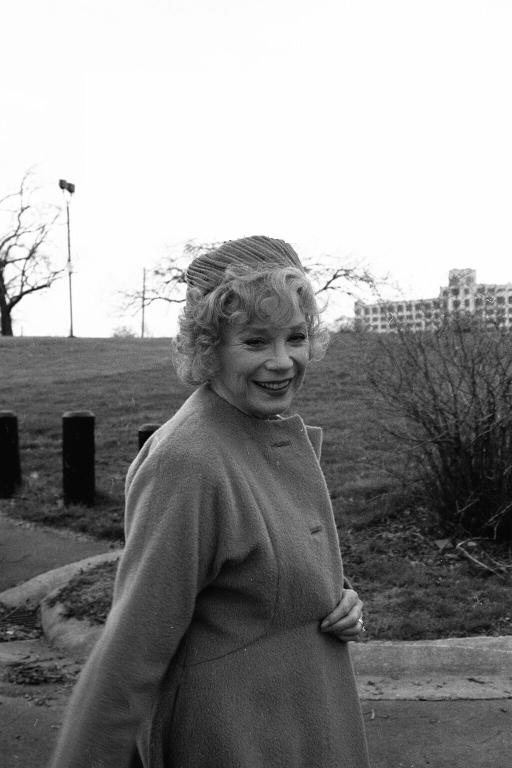
Following her Academy Award win, MacLaine appeared in Cannonball Run II (1984). After a four-year hiatus from acting, she returned to star in the drama Madame Sousatzka (1988), in the eponymous lead role as a Russian-American immigrant. She received positive reviews for her performance, earning her a second Golden Globe Award for Best Actress in a Motion Picture - Drama, tying with Jodie Foster and Sigourney Weaver. She also won the Volpi Cup at the Venice International Film Festival for this role. In 1989, she released her VHS, Shirley MacLaine's Inner Workout: A Program for Relaxation and Stress Reduction through Meditation, a companion to her 1989 book, Going Within: A Guide for Inner Transformation.
MacLaine continued to star in films, including the family southern drama Steel Magnolias (1989), directed by Herbert Ross. The film, which focuses on the bond shared by a group of women in a small-town Southern community as they cope with loss, was a box office success, earning 96.80 M USD against a budget of 15.00 M USD. MacLaine received a British Academy Film Award nomination for her performance. She then starred in Mike Nichols' film Postcards from the Edge (1990), alongside Meryl Streep, playing a fictionalized version of Debbie Reynolds from a screenplay written by Reynolds's daughter, Carrie Fisher, based on her book. MacLaine received another Golden Globe Award nomination for this role.
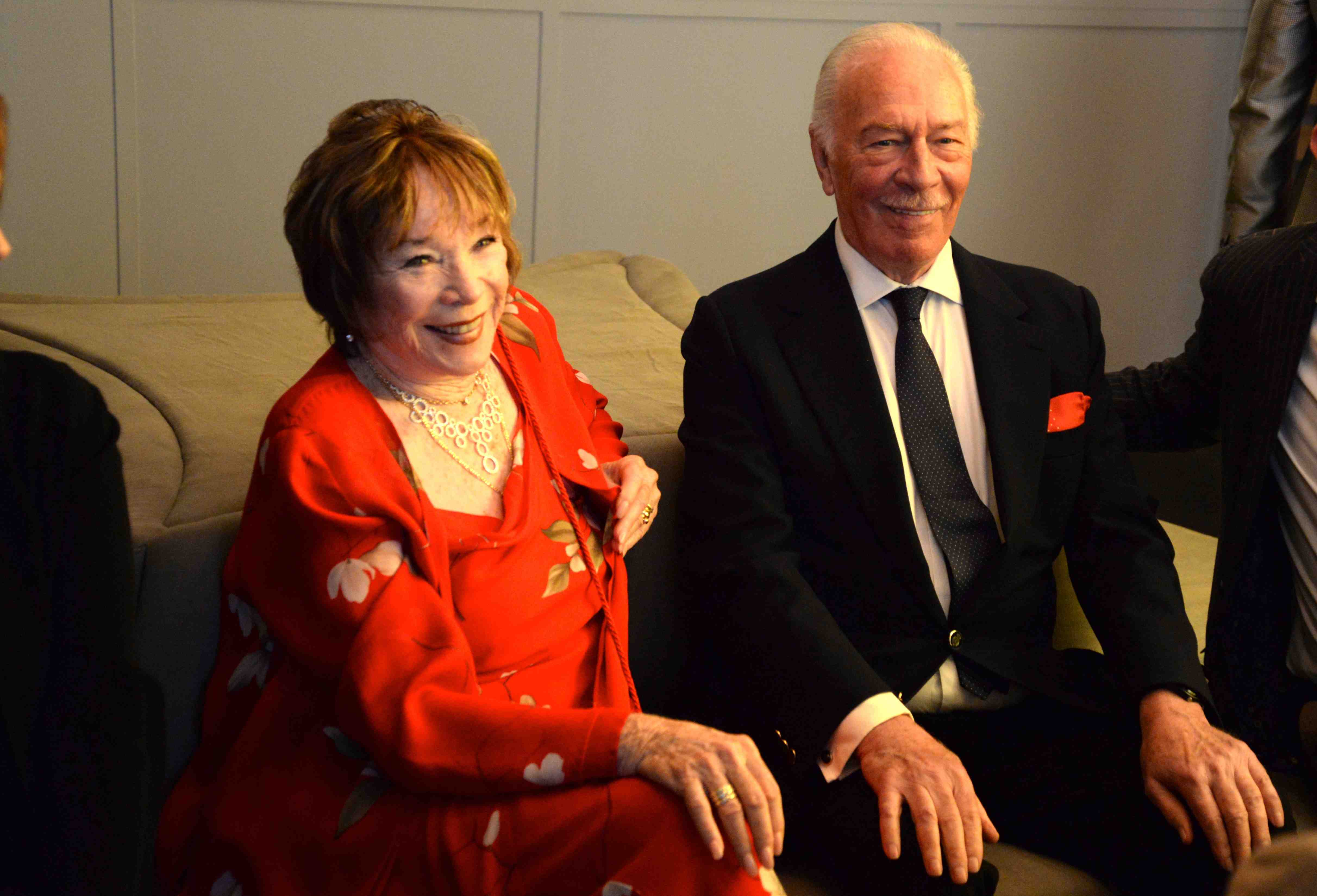
MacLaine's film career continued with roles in Used People (1992), co-starring Jessica Tandy and Kathy Bates; Guarding Tess (1994), with Nicolas Cage; Mrs. Winterbourne (1996), with Ricki Lake and Brendan Fraser; The Evening Star (1996), a sequel to Terms of Endearment; Rumor Has It... (2005) with Kevin Costner and Jennifer Aniston; In Her Shoes (also 2005), with Cameron Diaz and Toni Collette; and Closing the Ring (2007), directed by Richard Attenborough and starring Christopher Plummer. She would later reunite with Plummer in the 2014 comedy film Elsa & Fred, directed by Michael Radford. In 2000, MacLaine made her first and only feature-film directorial debut with Bruno (starring Alex D. Linz), which was later released to video as The Dress Code. In 2011, MacLaine starred in Richard Linklater's dark comedy film Bernie alongside Jack Black and Matthew McConaughey.
MacLaine has also appeared in numerous television projects throughout her career. In 1987, she starred in a miniseries based on her bestselling autobiography, Out on a Limb. In 2001, she appeared in These Old Broads, a television film written by Carrie Fisher and co-starring Elizabeth Taylor, Debbie Reynolds, and Joan Collins. In 2009, she starred in Coco Chanel, a Lifetime production based on the life of the French fashion designer, Coco Chanel, which earned her Primetime Emmy Award, Screen Actors Guild Award, and Golden Globe Award nominations. She also had a recurring role in the third and fourth seasons of the critically acclaimed British drama Downton Abbey (2012-2013) as Martha Levinson, the mother of Cora, Countess of Grantham (played by Elizabeth McGovern), and Harold Levinson (played by Paul Giamatti). Her television appearances continued with roles in Glee (2014) and the hit Hulu series Only Murders in the Building (2022), where she starred with Steve Martin, Martin Short, and Selena Gomez. In 2016, MacLaine starred in Wild Oats with Jessica Lange. She also appeared in the live-action family film The Little Mermaid, based on the Hans Christian Andersen fairytale, in 2018. In 2019, she played Elf Polly in the film Noelle. Her film American Dreamer opened in theaters in 2024, two years after its initial premiere at the Tribeca Film Festival.
2.6. Theatre performances
MacLaine has maintained a presence on the stage throughout her career, primarily on Broadway.
| Year | Title | Role | Notes |
|---|---|---|---|
| 1953 | Me and Juliet | Dance Ensemble | Majestic Theatre, Broadway |
| 1954 | The Pajama Game | Dancer/Gladys | Shubert Theatre, Broadway |
| 1976 | Shirley MacLaine | Herself | Palace Theatre, Broadway |
| 1984 | Shirley MacLaine on Broadway | Herself | Gershwin Theatre, Broadway |
3. Writing and Philosophy
Shirley MacLaine is not only renowned for her acting career but also for her extensive work as an author and her deep engagement with philosophical and spiritual beliefs, which have become central to her public persona.
3.1. Literary works
MacLaine has authored many books, including memoirs and writings focused on spirituality, metaphysics, and reincarnation. Her first memoir, Don't Fall Off the Mountain, was published in 1970. She followed this with McGovern: The Man and His Beliefs (1972) and You Can Get There from Here (1975).
Her 1983 book, Out on a Limb, became a global bestseller, detailing her personal spiritual journey and experiences. She continued to explore these themes in Dancing in the Light (1986), It's All in the Playing (1987), and Going Within: A Guide to Inner Transformation (1989), which also had a companion VHS workout video. Other works include Dance While You Can (1991) and My Lucky Stars: A Hollywood Memoir (1995), which reflects on her experiences in the film industry.
Her spiritual explorations are further detailed in The Camino: A Journey of the Spirit (2000), published in Europe as The Camino: A Pilgrimage of Courage, which recounts her walk along the Way of St. James. She also wrote Out on a Leash: Exploring the Nature of Reality and Love (2003), Sage-ing While Age-ing (2007), I'm Over All That: And Other Confessions (2011), What If...: A lifetime of questions, speculations, reasonable guesses, and a few things I know for sure (2013), and Above the Line: My 'Wild Oats' Adventure (2016).
3.2. Spiritual exploration and New Age beliefs
MacLaine has a strong interest in spirituality and metaphysics, which are central themes in many of her best-selling books. She is known as a proponent of New Age concepts, which in Japan are referred to as 精神世界seishin sekai (spiritual world)Japanese or スピリチュアルsupirichuaru (spiritual)Japanese. She has been influenced by the ideas of Edgar Cayce, a psychic and spiritual healer whose philosophy has strong ties to modern Theosophy. MacLaine supports Cayce's theory of reincarnation. Her spiritual explorations also draw from Buddhist thought and Eastern culture.
She has claimed that in a previous life in Atlantis, she was the brother of a 35,000-year-old spirit named Ramtha, who is channeled by the mystic teacher and author J. Z. Knight. MacLaine highly praised Knight in her book Dancing in the Light, supporting her for a period. Her spiritual explorations also include walking the Way of St. James, working with Chris Griscom, and practicing Transcendental Meditation.
The topic of New Age spirituality has also found its way into several of her films. In Albert Brooks's romantic comedy Defending Your Life (1991), MacLaine appears as herself, introducing past lives in the "Past Lives Pavilion." In Postcards from the Edge (1990), MacLaine sings a version of "I'm Still Here," with lyrics customized for her by composer Stephen Sondheim, including the line "I'm feeling transcendental - am I here?" In the 2001 television movie These Old Broads, MacLaine's character is a devotee of New Age spirituality.
She has expressed a strong interest in UFOs and gave numerous interviews on CNN, NBC, and Fox news channels on the subject during 2007-2008. In her 2007 book Sage-ing While Age-ing, she described having alien encounters and witnessing the 1952 Washington, D.C. UFO incident. On an episode of The Oprah Winfrey Show in April 2011, MacLaine stated that she and her neighbor had observed numerous UFOs at her New Mexico ranch for extended periods.
4. Personal life
Shirley MacLaine's personal life has been as public as her career, marked by her marriage, family relationships, and occasional public disagreements.
4.1. Marriage and family
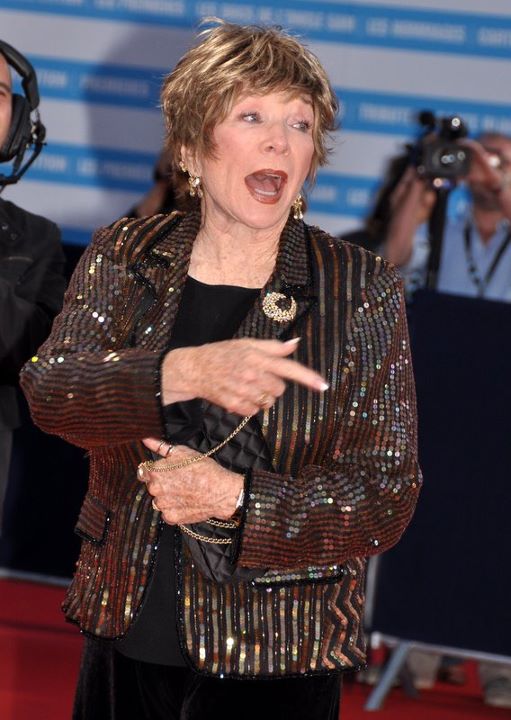
MacLaine was married to businessman Steve Parker from 1954 until their divorce in 1982. Their daughter, Sachi Parker, was born in 1956. In April 2011, while promoting her book I'm Over All That, MacLaine revealed on Oprah Winfrey's show that she and Parker had maintained an open relationship throughout their marriage.
In 2013, Sachi Parker's autobiography Lucky Me: My Life With - and Without - My Mom, Shirley MacLaine was published. The book included a claim that when Sachi was in her 20s, her mother told her she believed Steve Parker was a clone of her real father, an astronaut named Paul then traveling in the Pleiades. MacLaine denied this specific claim, stating that the book was "virtually all fiction."
4.2. Relationships and public feuds
MacLaine also told Oprah Winfrey that she often developed romantic feelings for the leading men she worked with, with the notable exceptions being Jack Lemmon (her co-star in The Apartment and Irma la Douce) and Jack Nicholson (her co-star in Terms of Endearment). She had long-running affairs with Lord Mountbatten, whom she met in the 1960s, and Australian politician and two-time Liberal leader Andrew Peacock.
MacLaine has also had public feuds with co-stars, including Anthony Hopkins during the filming of A Change of Seasons, with Hopkins reportedly saying she was "the most obnoxious actress I have ever worked with." She also had a well-documented conflict with Debra Winger during the production of Terms of Endearment.
5. Political activism
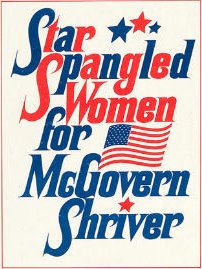
Shirley MacLaine has been actively involved in political campaigns and activism throughout her career. Along with her brother Warren Beatty, she utilized her celebrity status in instrumental roles as a fundraiser and organizer for George McGovern's campaign for president in 1972. During that year, she authored the book McGovern: The Man and His Beliefs.
She appeared at her brother's concerts, "Four for McGovern" and "Together for McGovern," and collaborated with Sid Bernstein to produce the woman-focused "Star-Spangled Women for McGovern-Shriver" variety show at Madison Square Garden. Her dedication to political activism in 1972 was so significant that she spent considerable time away from acting, turned down film projects, and personally spent 250.00 K USD on her political efforts.
MacLaine is the godmother to journalist Jackie Kucinich, daughter of former Democratic U.S. Representative Dennis Kucinich.
6. Lawsuits
Shirley MacLaine has been involved in significant legal disputes that have had a notable impact on the film industry and actor-studio relations.
In 1959, MacLaine sued Hal Wallis over a contractual dispute. This lawsuit has been widely credited with contributing to the end of the old-style studio star system of actor management, which often bound performers to long-term, restrictive contracts.
A more famous case occurred in 1966 when MacLaine sued Twentieth Century-Fox for breach of contract. The studio had reneged on its agreement to star MacLaine in a film version of the Broadway musical Bloomer Girl, which was to be based on the life of Amelia Bloomer, a mid-nineteenth-century feminist, suffragist, and abolitionist, and filmed in Hollywood. Instead, Fox offered MacLaine one week to accept their offer of the female dramatic lead in the Western Big Country, Big Man, which was to be filmed in Australia. MacLaine refused this alternative. The case was ultimately decided in MacLaine's favor and affirmed on appeal by the California Supreme Court in 1970. This landmark case, Parker v. Twentieth Century-Fox Film Corp., is frequently discussed in many law-school textbooks as a prominent example of employment-contract law, particularly concerning the doctrine of mitigation of damages.
7. Legacy and honors
Shirley MacLaine's enduring influence is reflected in her numerous awards, nominations, and significant recognitions throughout her extensive career.
7.1. Awards and nominations
MacLaine has received a multitude of awards and nominations for her acting and other contributions to the arts. She is a six-time Academy Award nominee, winning the Academy Award for Best Actress for her role in Terms of Endearment (1983). She was also nominated for Best Actress for Some Came Running (1958), The Apartment (1960), Irma la Douce (1963), and The Turning Point (1977). Additionally, her documentary The Other Half of the Sky: A China Memoir (1975) was nominated for the Academy Award for Best Documentary Feature Film.
She has won two BAFTA Awards for Best Actress in a Leading Role, for Ask Any Girl (1959) and The Apartment (1960), and was nominated for several others, including for Steel Magnolias (1989) and Postcards from the Edge (1990).
MacLaine has received six Golden Globe Awards. Her wins include New Star of the Year (1955), Best Actress - Motion Picture Musical or Comedy for The Apartment (1960) and Irma la Douce (1963), and Best Actress - Motion Picture Drama for Terms of Endearment (1983) and Madame Sousatzka (1988). She was also honored with the Golden Globe Cecil B. DeMille Award in 1998 for her outstanding contributions to the entertainment world. She has received numerous Golden Globe nominations across various categories throughout her career.
Her accolades also include two Volpi Cups from the Venice International Film Festival (for The Apartment in 1960 and Madame Sousatzka in 1988), and two Silver Bears from the Berlin International Film Festival (for Ask Any Girl in 1959 and Desperate Characters in 1971). Other significant awards include the Los Angeles Film Critics Association Award for Best Actress (1983), National Board of Review Award for Best Actress (1983), and New York Film Critics Circle Award for Best Actress (1983).
7.2. Honors and recognition
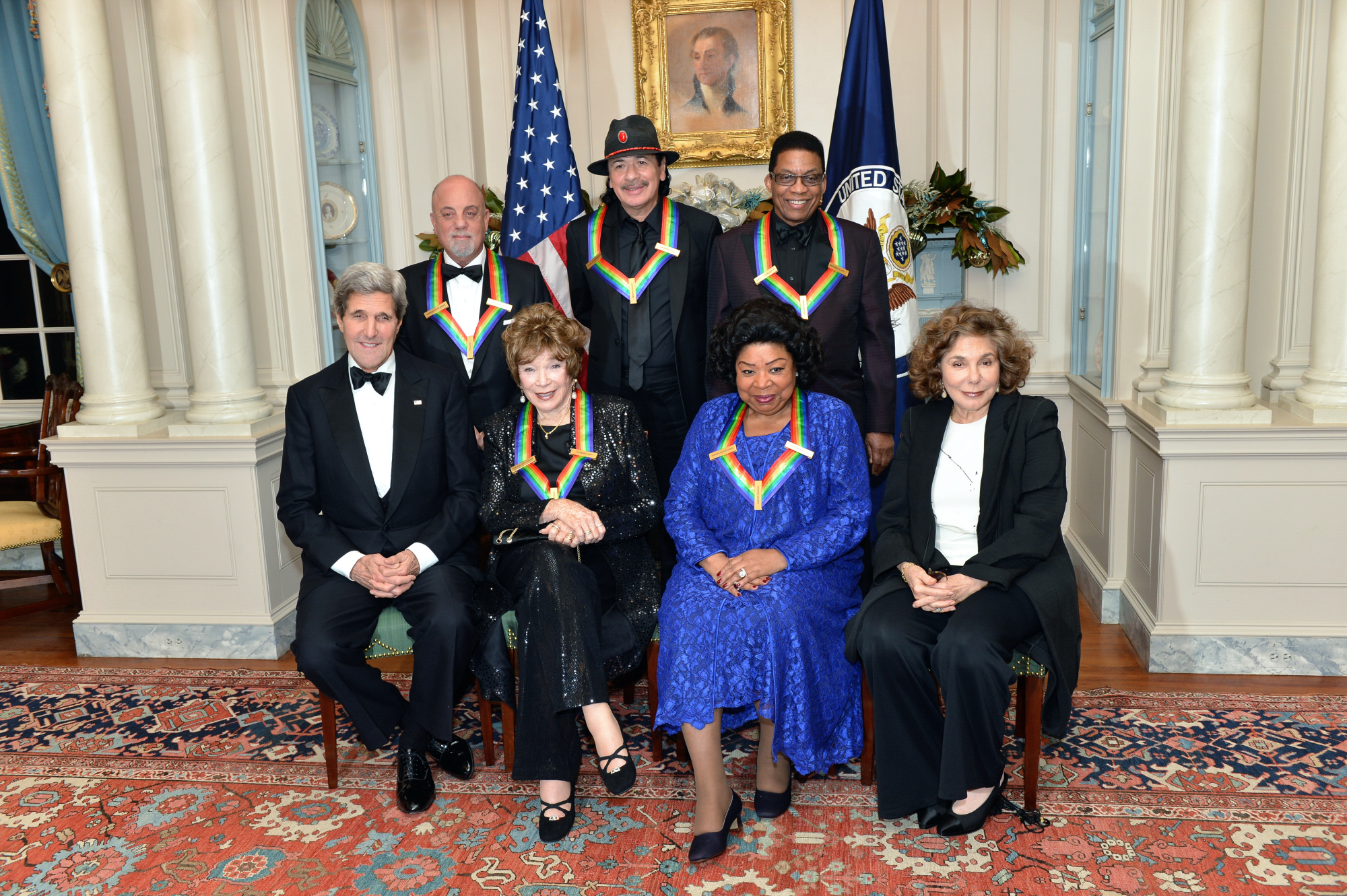
In 1960, Shirley MacLaine received a star on the Hollywood Walk of Fame at 1617 Vine Street. In 1999, she was awarded the Honorary Golden Bear at the 49th Berlin International Film Festival. The government of France made her a Chevalier de la Legion d'honneur in 2011.
In 2012, she was honored with the AFI Life Achievement Award, one of the highest honors in American cinema. In 2013, MacLaine was awarded the Kennedy Center Honors for her lifetime contributions to American culture through the performing arts. At the 2017 Academy Awards telecast, Charlize Theron praised MacLaine for her iconic work in The Apartment during a special segment. MacLaine later presented the Academy Award for Best International Film of the year alongside Theron. In 2019, she received the Movies for Grown Ups with AARP the Magazine's Life Time Achievement Award. She also received the Los Angeles Film Critics Association Lifetime Achievement Award in 2016.
8. Filmography
Shirley MacLaine has an extensive filmography across film, television, and theatre.
8.1. Film
| Year | Title | Role | Notes |
|---|---|---|---|
| 1955 | The Trouble with Harry | Jennifer Rogers | |
| Artists and Models | Bessie Sparrowbrush | ||
| 1956 | Around the World in 80 Days | Princess Aouda | |
| 1958 | Some Came Running | Ginnie Moorehead | |
| The Sheepman | Dell Payton | ||
| Hot Spell | Virginia Duval | ||
| The Matchmaker | Irene Molloy | ||
| 1959 | Ask Any Girl | Meg Wheeler | |
| Career | Sharon Kensington | ||
| 1960 | Ocean's 11 | Tipsy woman | Uncredited cameo |
| Can-Can | Simone Pistache | ||
| The Apartment | Fran Kubelik | ||
| 1961 | The Children's Hour | Martha Dobie | |
| All in a Night's Work | Katie Robbins | ||
| Two Loves | Anna Vorontosov | ||
| 1962 | Two for the Seesaw | Gittel Mosca | |
| My Geisha | Lucy Dell / Yoko Mori | ||
| 1963 | Irma la Douce | Irma la Douce | |
| 1964 | The Yellow Rolls-Royce | Mae Jenkins | |
| What a Way to Go! | Louisa May Foster | ||
| 1965 | John Goldfarb, Please Come Home! | Jenny Erichson | |
| 1966 | Gambit | Nicole Chang | |
| 1967 | Woman Times Seven | Paulette / Maria Teresa / Linda / Edith / Eve Minou / Marie / Jeanne | |
| 1968 | The Bliss of Mrs. Blossom | Harriet Blossom | |
| 1969 | Sweet Charity | Charity Hope Valentine | |
| 1970 | Two Mules for Sister Sara | Sara | |
| 1971 | Desperate Characters | Sophie Bentwood | |
| 1972 | The Possession of Joel Delaney | Norah Benson | |
| 1975 | The Other Half of the Sky: A China Memoir | Herself | Documentary; also writer, co-director, producer |
| 1977 | The Turning Point | Deedee Rodgers | |
| 1979 | Being There | Eve Rand | |
| 1980 | A Change of Seasons | Karyn Evans | |
| Loving Couples | Evelyn | ||
| 1981 | Sois belle et tais-toi (Be Pretty and Shut Up) | Herself | Documentary by Delphine Seyrig |
| 1983 | Terms of Endearment | Aurora Greenway | |
| 1984 | Cannonball Run II | Veronica | |
| 1988 | Madame Sousatzka | Madame Yuvline Sousatzka | |
| 1989 | Steel Magnolias | Louisa "Ouiser" Boudreaux | |
| 1990 | Postcards from the Edge | Doris Mann | |
| Waiting for the Light | Aunt Zena | ||
| 1991 | Defending Your Life | Shirley MacLaine | |
| 1992 | Used People | Pearl Berman | |
| 1993 | Wrestling Ernest Hemingway | Helen Cooney | |
| 1994 | Guarding Tess | Tess Carlisle | |
| 1996 | The Evening Star | Aurora Greenway | |
| Mrs. Winterbourne | Grace Winterbourne | ||
| 1997 | A Smile Like Yours | Martha | Uncredited |
| 1999 | Get Bruce | Herself | Documentary |
| 2000 | The Dress Code | Helen | Also director |
| 2003 | Carolina | Grandma Millicent Mirabeau | |
| Broadway: The Golden Age | Herself | Documentary | |
| 2005 | Rumor Has It... | Katharine Richelieu | |
| Bewitched | Iris Smythson / Endora | ||
| In Her Shoes | Ella Hirsch | ||
| 2007 | Closing the Ring | Ethel Ann Harris | |
| 2010 | Valentine's Day | Estelle Paddington | |
| 2011 | Bernie | Marjorie Nugent | |
| 2013 | The Secret Life of Walter Mitty | Edna Mitty | |
| 2014 | Elsa & Fred | Elsa Hayes | |
| 2016 | Wild Oats | Eva | |
| 2017 | The Last Word | Harriett Lauler | |
| 2018 | The Little Mermaid | Grandmother Eloise | |
| 2019 | Jim Button and Luke the Engine Driver | Mrs. Grindtooth | Voice (English version) |
| Noelle | Elf Polly | ||
| 2022 | American Dreamer | Astrid Fanelli |
8.2. Television
| Year | Title | Role | Notes |
|---|---|---|---|
| 1955 | Shower of Stars | Herself | 2 episodes |
| 1971-1972 | Shirley's World | Shirley Logan | 17 episodes |
| 1976 | Gypsy in my Soul | Herself | Television special with Lucille Ball |
| 1977 | The Shirley MacLaine Special: Where Do We Go From Here? | Herself | Television special |
| 1979 | Shirley MacLaine at the Lido | Herself | Television special |
| 1987 | Out on a Limb | Herself | Television film; also writer |
| 1995 | The West Side Waltz | Margaret Mary Elderdice | Television film |
| 1998 | Stories from My Childhood | Narrator | Episode: "The Nutcracker" |
| 1999 | Joan of Arc | Madame de Beaurevoir | 2 episodes |
| 2001 | These Old Broads | Kate Westbourne | Television film |
| 2002 | Salem Witch Trials | Rebecca Nurse | Television film |
| Hell on Heels: The Battle of Mary Kay | Mary Kay | Television film | |
| 2008 | Coco Chanel | Coco Chanel | Television film |
| Anne of Green Gables: A New Beginning | Amelia Thomas | Television film | |
| 2012-2013 | Downton Abbey | Martha Levinson | 3 episodes |
| 2014 | Glee | June Dolloway | 2 episodes |
| 2016 | A Heavenly Christmas | Pearl | Television film |
| 2022 | Only Murders in the Building | Leonora Folger / Rose Cooper | 2 episodes |
8.3. Theatre
| Year | Title | Role | Notes |
|---|---|---|---|
| 1953 | Me and Juliet | Dance Ensemble | Majestic Theatre, Broadway |
| 1954 | The Pajama Game | Dancer/Gladys | Shubert Theatre, Broadway |
| 1976 | Shirley MacLaine | Herself | Palace Theatre, Broadway |
| 1984 | Shirley MacLaine on Broadway | Herself | Gershwin Theatre, Broadway |